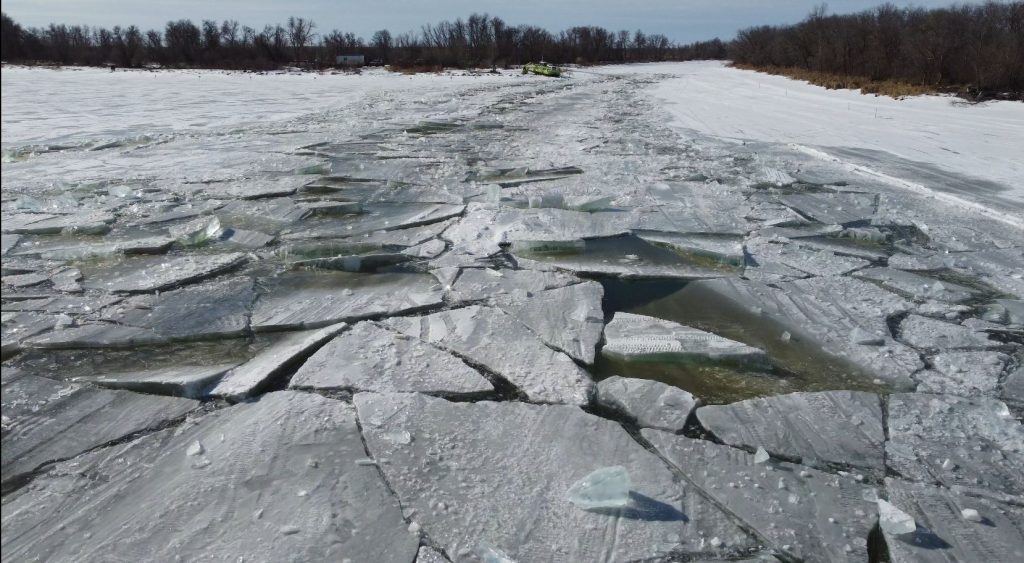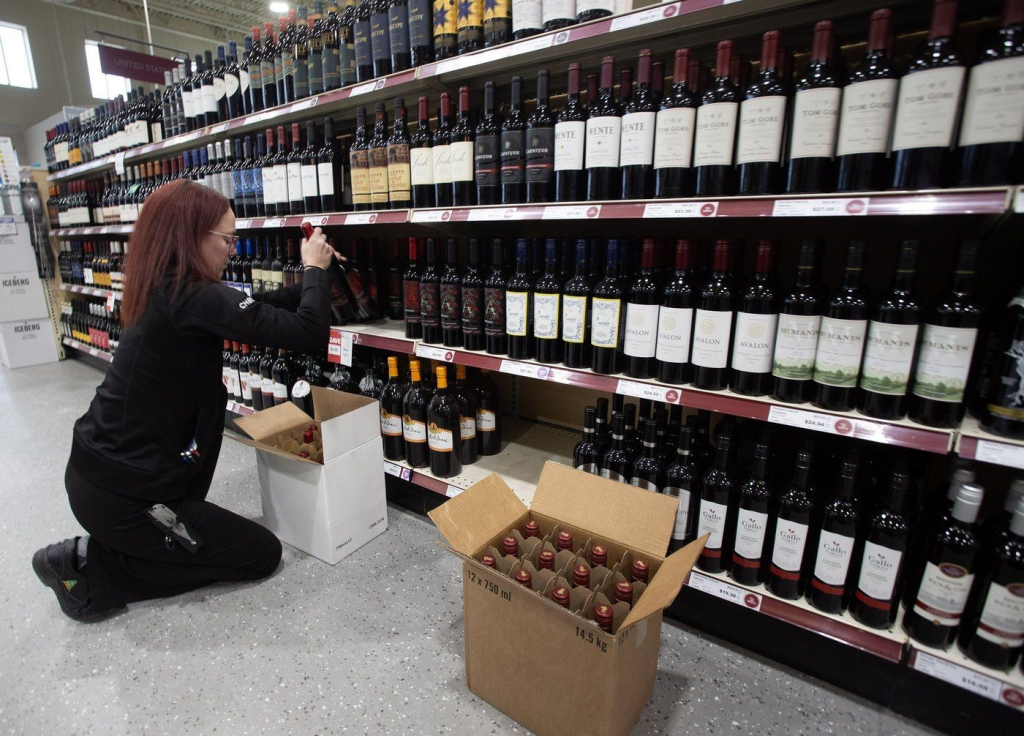Answers to your questions about the COVID-19 pandemic

Posted March 11, 2020 9:02 am.
Last Updated April 28, 2020 7:36 am.
This article is more than 5 years old.
You’ve probably heard a lot about COVID-19. But do you have all the facts?
We answer some of the most frequently asked questions about the virus below. This page will be updated regularly.
What is the novel coronavirus and COVID-19?
The novel coronavirus is a new virus in the larger coronavirus family, which includes strains that cause the common cold, as well as more serious diseases such as SARS (Severe Acute Respiratory Syndrome) and MERS (Middle Eastern Respiratory Syndrome).
COVID-19 is the disease caused by the new coronavirus (called the Coronavirus Disease 2019, for the year it was first identified).
The outbreak began in Wuhan, China.
How does it spread?
The virus spreads through droplets expelled when you cough or sneeze. Experts don’t think it can spread through the air. That means it spreads mostly via person-to-person contact.
Coronaviruses generally don’t live long on surfaces, but researchers are still learning about how the new one transmits.
What are the symptoms?
The main symptoms of COVID-19 are fever, coughing, difficulty breathing and pneumonia in both lungs. But many people diagnosed with the disease exhibit little to no symptoms.
How big is the outbreak?
As of Monday, April 27, there were more than 2,883,600 confirmed cases of COVID-19 and 198,842 deaths worldwide, according to the World Health Organization.
As of Saturday, April 25, there were a total of 1,948 confirmed cases and 100 deaths in B.C., according to the B.C. CDC. At the time, 1,137 people were reported to have fully recovered.
On March 11, the WHO said the outbreak is now considered a pandemic.
What is a pandemic?
The pandemic designation indicates how widespread the outbreak is and doesn’t necessarily mean COVID-19 is a particularly serious or deadly disease. The WHO declared the new coronavirus to be a pandemic due to its spread around the world. Two-hundred-and-thirteen countries have now reported COVID-19 diagnoses.
“We cannot say this loudly enough, or clearly enough, or often enough: all countries can still change the course of this pandemic,” Dr. Tedros Adhanom Ghebreyesus, Director-General of the WHO, said in March. “We have never before seen a pandemic sparked by a coronavirus, and we have never before seen a pandemic that can be controlled at the same time.”
What has been closed and cancelled?
A this point, it would be easier to list the events, festivals and concerts that haven’t been cancelled or postponed by the pandemic. Municipalities throughout the Lower Mainland have also closed recreation centres. Cineplex has closed all of its movie theatres. B.C.’s provincial health officer, Dr. Bonnie Henry, has ordered all bars to close. Restaurants that remain open are only offering take-out and delivery options.
In short, if it involves people interacting in close quarters, it’s closed. But the weather has been fantastic and health officials say it’s still safe for most of us to go for walks and runs.
What is the government doing to support me financially?
A number of measures have been announced by federal and provincial governments to help people and businesses affected by the COVID-19 pandemic.
The Canada Emergency Response Benefit, the Canada Emergency Wage Subsidy, and the Canada Emergency Commercial Rent Assistance are just a few of the programs announced by the federal government. More help for seniors and students has also been announced.
In B.C., the province has also announced a number of relief measures, including an Emergency Benefit for Workers, a temporary freeze on rent hikes, halting evictions, and a temporary rental supplement.
Am I at risk of getting the disease?
According to the government, COVID-19 is a “serious health threat.” It notes the situation continues to evolve and that the risk can vary between — and within — communities.
However, due to the increasing number of cases, the federal government now classifies the risk of COVID-19 as “high” for Canadians. This doesn’t, however, mean every Canadian will get the virus. “It means that there is already a significant impact on our health care system,” the federal website reads. “If we do not flatten the epidemic curve now, the increase of COVID-19 cases could impact health care resources available to Canadians.”
You’re reminded to stay home, practise social distancing, and wash your hands frequently.
Is it just older people who are at risk?
No. People of all ages can be infected by the novel coronavirus. However, older people — people 65 years of age and older — and those with underlying health issues such as asthma, diabetes and heart disease seem to be more likely to get seriously sick if they get it, the WHO has said. The federal government warns while these people are “are at an increased risk of more severe outcomes,” social and economic circumstances my also factor into who is more vulnerable to COVID-19.
Are my kids at risk?
Kids are getting COVID-19, but appear to be recovering from it well, according to Dr. Camille Sabella.
“Even the very young kids that we have from China, who were very young generally did very well,” he said in March. “Exactly why that is happening. I don’t think we have a good feel for that right now.”
Can my pet get COVID-19?
Our furry friends appear to be at a relatively low risk when it comes to the new coronavirus.
Pet cats and dogs cannot pass the new coronavirus on to humans, but they can test positive for low levels of the pathogen if they catch it from their owners, according to Hong Kong’s Agriculture, Fisheries and Conservation Department.
While the evidence does point to an animal as the original source of COVID-19, the World Organization for Animal Health has said there’s currently no evidence that companion animals play a significant role in spreading the disease.
My immune system is compromised. What should I do?
The Public Health Agency of Canada recommends “protective self-separation” for people with a “high risk for severe illness from COVID-19” if the disease is circulating in their community. That includes people with chronic underlying medical conditions and the immunocompromised.
Protective self-separation involves avoiding contact with other people, but does require someone fully self isolate.
How do I avoid getting COVID-19?
- Wash. Your. Hands! Use hot water and soap and scrub away for at least 20 seconds.
- Avoid touching you face, especially your eyes, nose and mouth
- Cover your mouth with your arm when you cough or sneeze
- Disinfect frequently touched surfaces such as toilets, tables, doorknobs, phones, TV remotes with diluted bleach (one part bleach to nine parts water)
- Avoid contact with sick people
- Stay home!
Should I wear a mask?
When worn properly, health officials note “a non-medical mask or face covering can reduce the spread of his or her own infectious respiratory droplets.” Wearing a face mask is currently not mandatory in Canada, and people are being asked to reserve medical face masks for frontline and health care workers. They are, however, required for all air passengers at Canadian airports.
Should I cancel my travel plans?
A global travel advisory is in place amid the pandemic. Canadians are urged to avoid all non-essential travel outside of Canada until further notice. The Canada-U.S. border is currently closed to all non-essential traffic.
On March 14, Canada’s federal government began urging all Canadians abroad to return to their home country “via commercial means while they remain available.” But some Canadians have reported being unable to come home as borders close and airlines ground planes. Currently, international flight can only land in Vancouver, Toronto, Calgary, and Montreal. Canada closed its border to all non-citizens and non-residents in March.
In response to the COVID-19 pandemic, the federal government has also deferred the start of the cruise ship season from April 1 to July 1, at the earliest.
I’m returning to Canada from abroad. What should I do?
Anyone arriving in Canada is now required to self-isolate for 14 days. Travellers are required to show they have an appropriate self-isolation plan; if it’s determined they do not have one, they will be required to self-isolate in a quarantine location, like a hotel.
I think I have COVID-19. What should I do?
If you have or think you have COVID-19, HealthLink BC says self-isolating for 10 days from the start of your symptoms can help prevent spreading it to others. The federal health agency recommends self-isolating at home for 14 days. The symptoms of the novel coronavirus are similar to other respiratory illnesses, including the flu and common fold. They can vary from person to person, with most people experiencing mild symptoms.
If you are going to see a health care provider, make sure you call ahead first. When you do go, wear a mask and wash your hands. If you have any questions about what to do, you can call HealthLinkBC’s information line at 811.
If you have difficulty breathing or chest pains, call 9-1-1 or your local emergency number right away.
I have COVID-19. What’s the treatment?
There isn’t a specific treatment for the new disease, but your health care provider can help you relieve symptoms. For most people, the illness is mild and doesn’t require treatment.
Antibiotics do nothing to treat viruses. As the name suggests, “the new coronavirus (2019-nCoV) is a virus and, therefore, antibiotics should not be used as a means of prevention or treatment,” the WHO has said.
Is there a vaccine?
There is no vaccine for COVID-19 and this year’s flu vaccine will not protect against the new coronavirus.
The federal government has boosted research funding and said it will spend $1.1-billion to help develop and manufacture a vaccine against COVID-19. The money will also go toward country-wide testing. However, it’s likely to take more than a year to develop and test one.
Still have questions? Send them to reporter Kelvin Gawley at kelvin.gawley@rci.rogers.com.
Read more of NEWS 1130’s COVID-19 coverage here.








